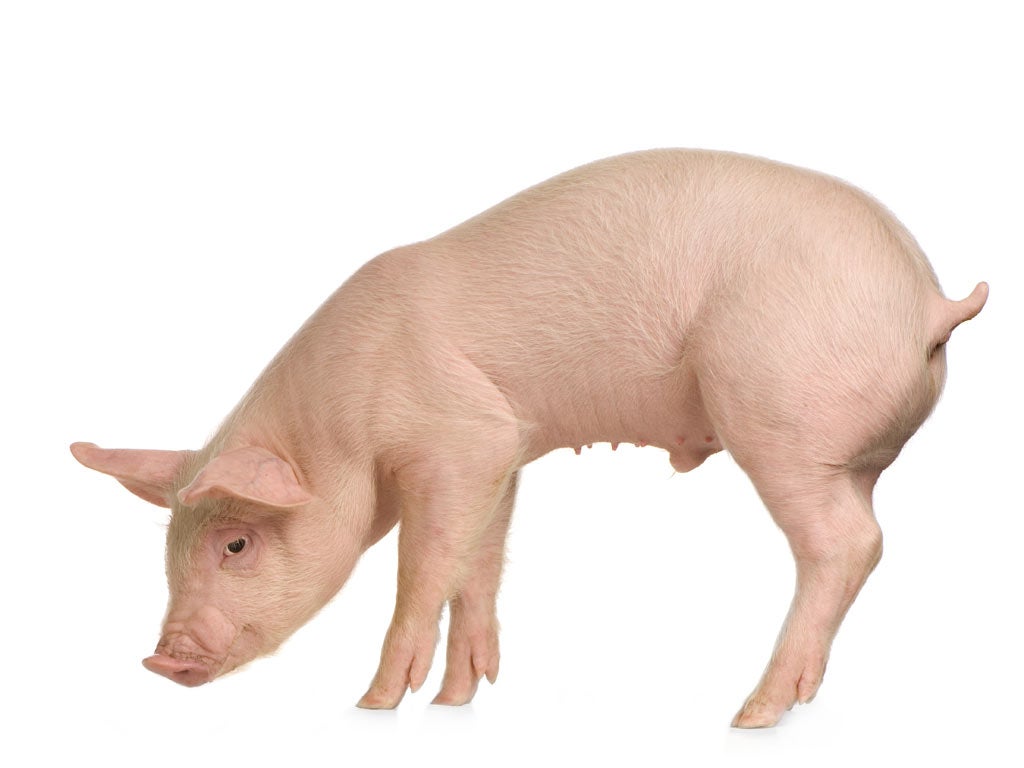Pig-to-human tissue transplants 'imminent'
Trials could begin in the US within two years – but British expert warns that safety fears remain

Your support helps us to tell the story
From reproductive rights to climate change to Big Tech, The Independent is on the ground when the story is developing. Whether it's investigating the financials of Elon Musk's pro-Trump PAC or producing our latest documentary, 'The A Word', which shines a light on the American women fighting for reproductive rights, we know how important it is to parse out the facts from the messaging.
At such a critical moment in US history, we need reporters on the ground. Your donation allows us to keep sending journalists to speak to both sides of the story.
The Independent is trusted by Americans across the entire political spectrum. And unlike many other quality news outlets, we choose not to lock Americans out of our reporting and analysis with paywalls. We believe quality journalism should be available to everyone, paid for by those who can afford it.
Your support makes all the difference.The world is on the cusp of a medical revolution which will see transplants of tissue from genetically engineered pigs to treat a range of human diseases, US scientists say today.
Click HERE to view graphic (103k jpg)
Human trials could begin within two to three years of tissue taken from specially bred pigs to help the millions of sufferers from diabetes, brain diseases and blindness.
But a British expert challenged their findings saying the safety issues were still "unresolved". The fear is that a retrovirus could jump from pigs to humans and trigger a new pandemic – HIV is thought to have started from a cross-species infection.
In a review of xenotransplantation – using animal tissue and organs to replace human ones – experts from the Thomas Starzl Transplantation Institute at the University of Pittsburgh say the technology has made "great strides".
During the mid-1990s, Imutran, a small biotechnology company in Cambridge, became the first in the world to transplant pigs' hearts into monkeys, demonstrating that cross-species transplantation was possible. However, immune system rejection problems proved more difficult than expected and safety fears dampened enthusiasm.
A decade on, attention has focused on the transplant of cells and tissues rather than organs – pancreatic islets for diabetics, brain cells for Parkinson's disease and corneas for the blind.
Problems remain, including loss of transplanted cells, blood clots and other rejection problems. New, genetically modified pigs will shortly become available which could overcome these issues and make human trials of transplanted tissue "imminent".
The US scientists discount safety fears saying retroviruses "do not pose a substantial risk".
That was challenged by Robin Weiss, professor of virology at University College, London, and an expert on retroviruses. He said yesterday: "I don't think the risk issues have been resolved. That doesn't mean clinical trials shouldn't go ahead but there would need to be very close monitoring of patients to ensure they were not picking something up from pigs."
Join our commenting forum
Join thought-provoking conversations, follow other Independent readers and see their replies
Comments